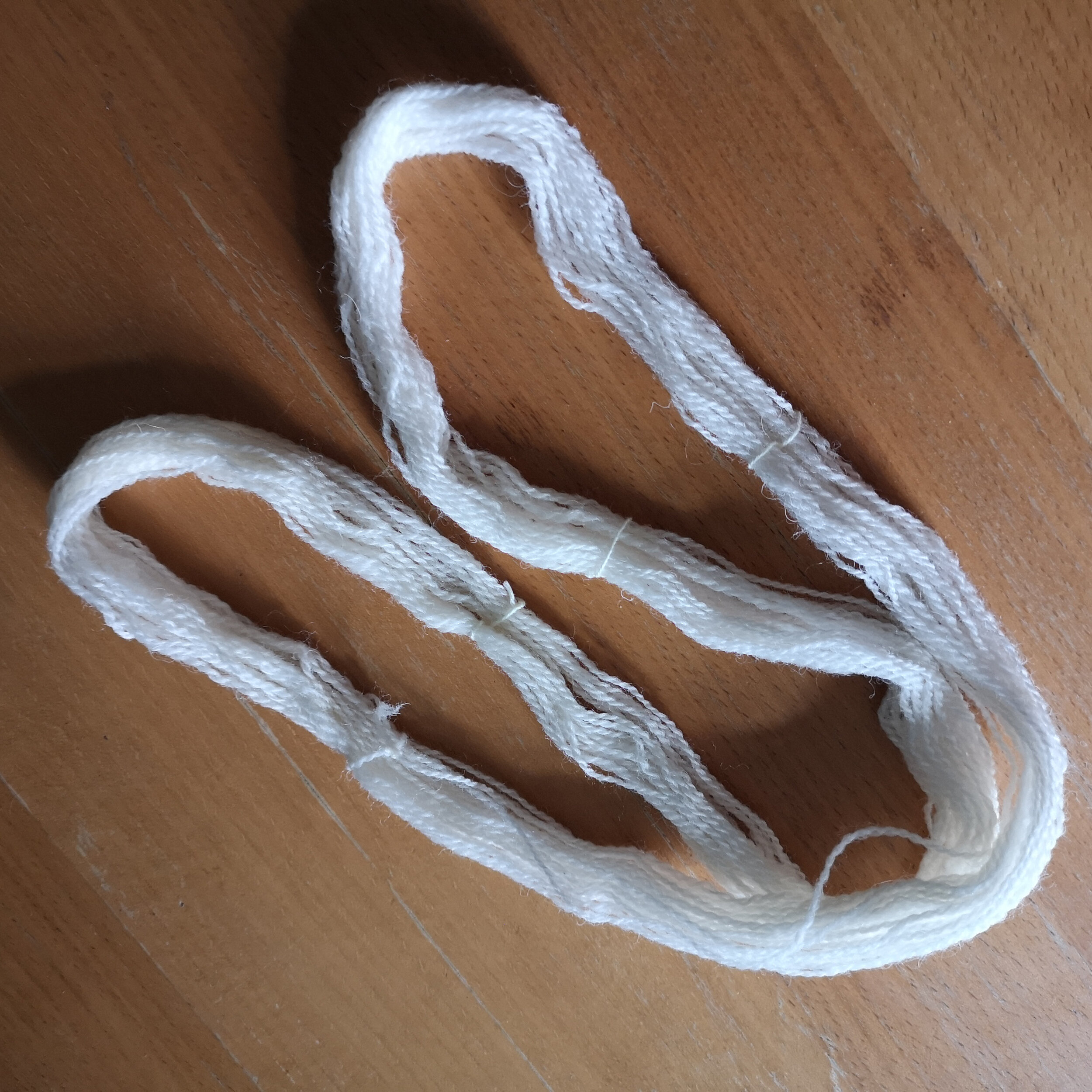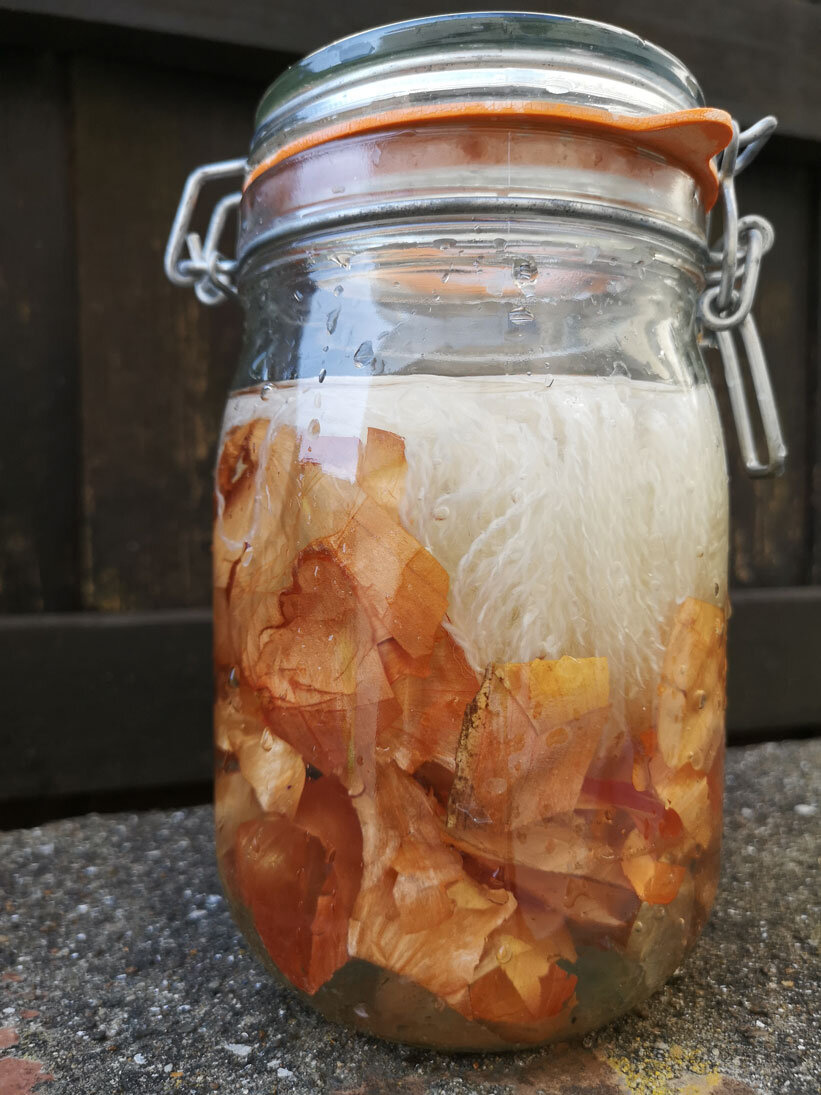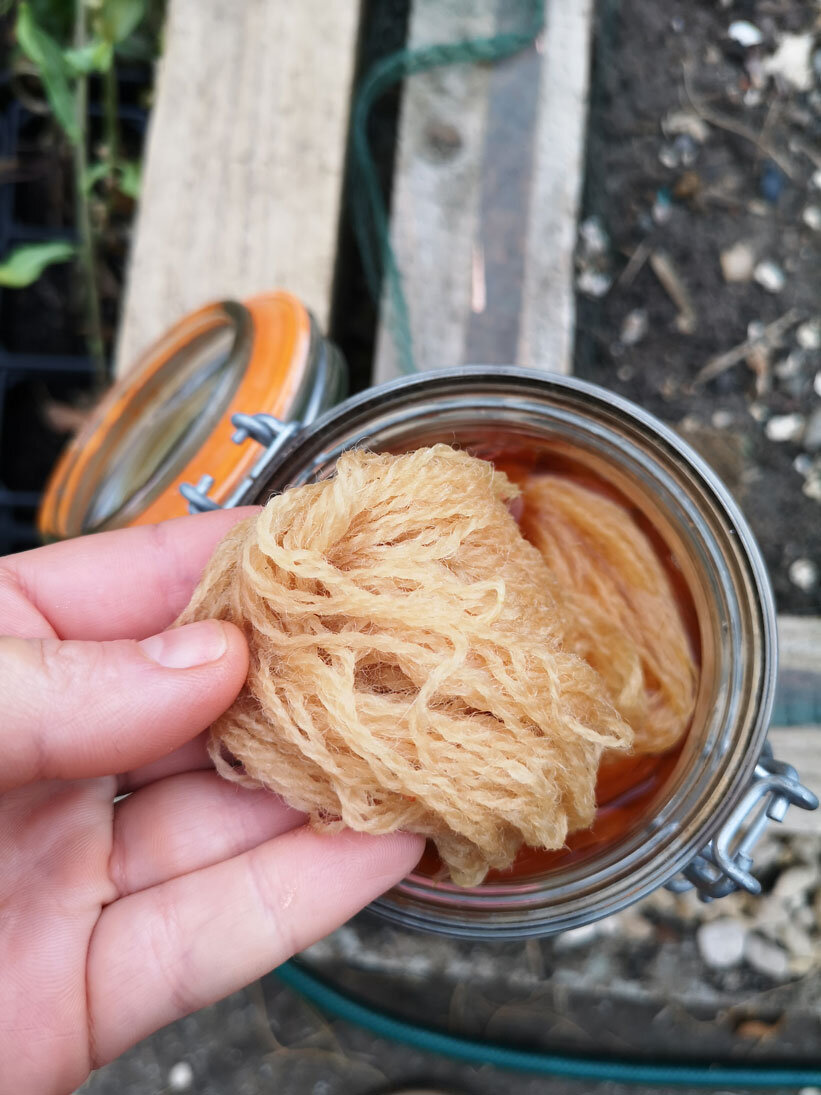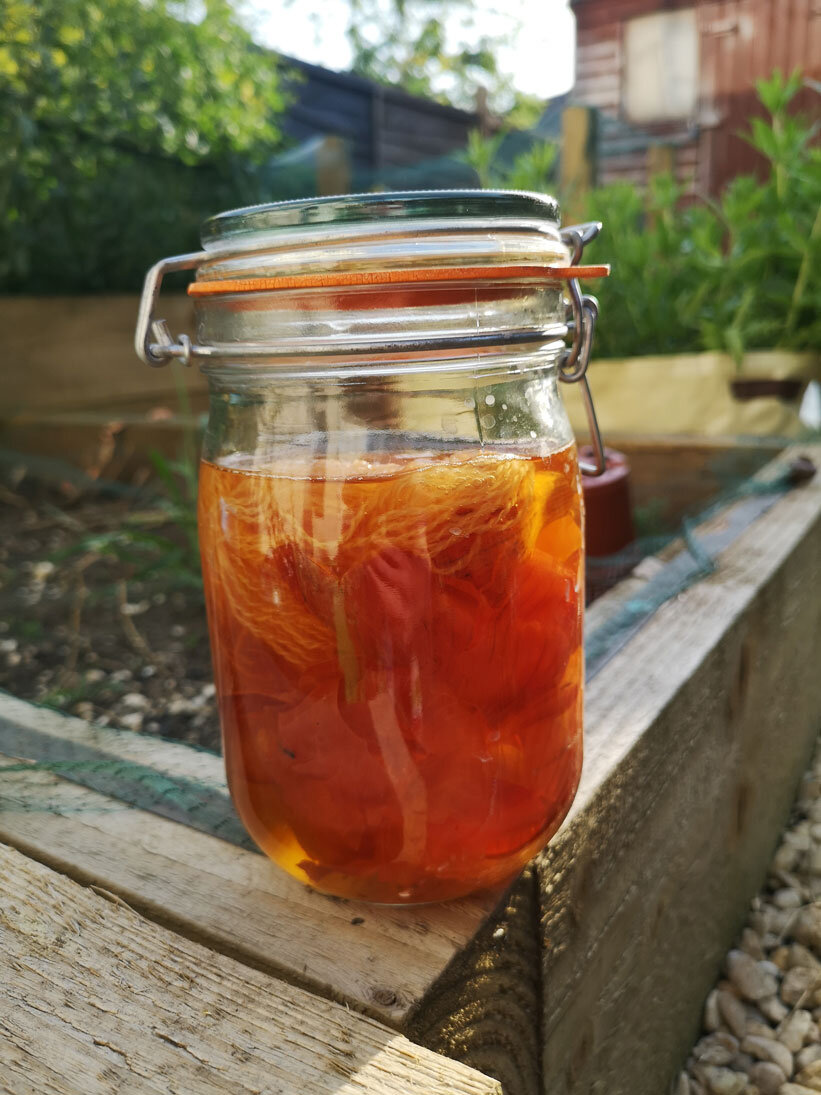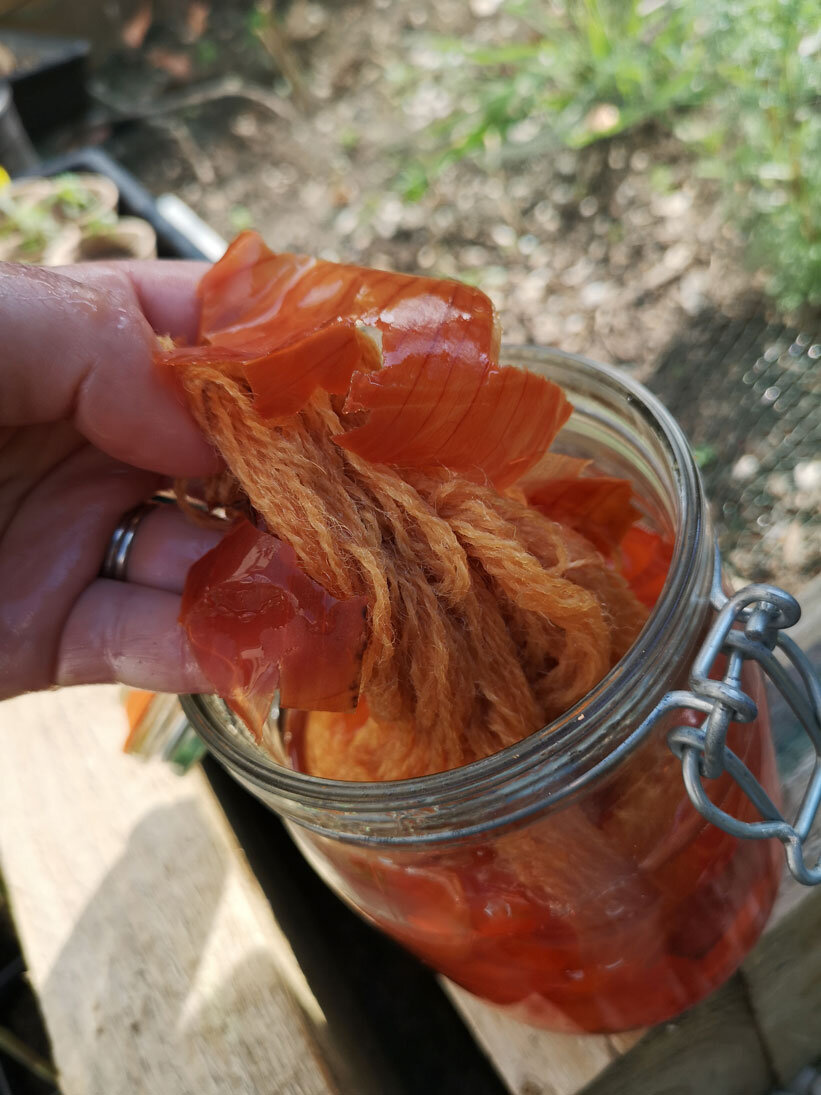Lockdown Craft Activity - Try Solar Dyeing with Onion Skins!
The offerings in my dye garden at this time of year are pretty slim. April in the UK is a good time of year for foraging, but with the lockdown restrictions, this has become more difficult. Because of this, I have been looking at other natural dyestuffs that are readily available in the home – with onion skins proving a clear winner.
Here’s a simple tutorial of how you can use the sun’s powers to dye your own yarn! Called solar dyeing, it’s a fun, easy way to try out natural dyes with great results. It requires no fancy equipment and just a few days of patience to develop the colour.
You will need:
A lidded jar (e.g. a Kilner, but other work fine)
A handful of onion skins (red or brown, or both!)
A skein of yarn (for this example I used a 10g skein of white 4ply British wool) - you can also use a piece of fabric.
Instructions:
First, select your yarn. Protein fibres (e.g. wool and silk) work the best, but cotton can work too. Acrylic and other synthetics are not suitable.
Make sure your yarn is wound into a skein/hank and tied at several places with some string to avoid tangles.
Ensure the yarn is clean and free of oils by soaking in hot soapy water for about half an hour. Rinse thoroughly until the yarn is clean (you may need to do a second wash if the yarn is particularly greasy).
Into the clean jar, add the onion skins (a handful should do) and the clean yarn. Ensure the jar is large enough so that the contents can move around freely. Top up with water and close the lid..
5. Leave the jar in a sunny spot, in your garden, or an inside windowsill. You will start to see the colour emerge after a few hours!
6. Check the jar daily to see what colour the yarn is, and lightly shake the jar to agitate the contents.
7. Once the yarn has been dyed to a suitable colour – remove from the jar and rinse with a light degergent (washing up liquid is fine!).
Once the yarn is dry, you’ll have a skein of naturally dyed yarn! My jar was sat in the sun for one week to produce the shade shown in the photo below.
Some tips for great results:
Red onion skins will achieve a greeny shade, brown skins will make a orangey shade. You can combine the two to get golden colour.
You'll need a larger quantity of onion skins if you use a larger skein of yarn or piece of fabric.
Don’t leave the jar sealed for too long or it will get mouldy!
Onion skins do not require a mordant or fixative to dye the yarn. Other materials will require a mordant, with alum being the most common one. There are many guides and videos online to help you research further.
Experiment with what you have around you – dandelions are prolific in the park I use for my daily exercise. Use the leaves and flowers together to produce a lovely buttery yellow hue!
Enjoy your solar dyeing! Please tag me if you’ve used my tutorial to try this method at home - I’m @riaburnsknit on Instagram.
The solar dye method would work wonderfully with my new beginner’s natural dye kit, which is available to order now!
Using dried Dahlias grown in my garden, you’ll learn how to dye a skein of my Somerset lambswool yarn a vibrant natural shade. All materials and full instructions are included in the kit.
If you’ve enjoyed reading this blog and found it helpful, why not buy me a virtual coffee on Ko-Fi? There’s no obligation, but your support will help me continue to write these blogs and help me continue my journey to becoming a self-sufficient natural dye grower and knitwear designer. Ria :)

